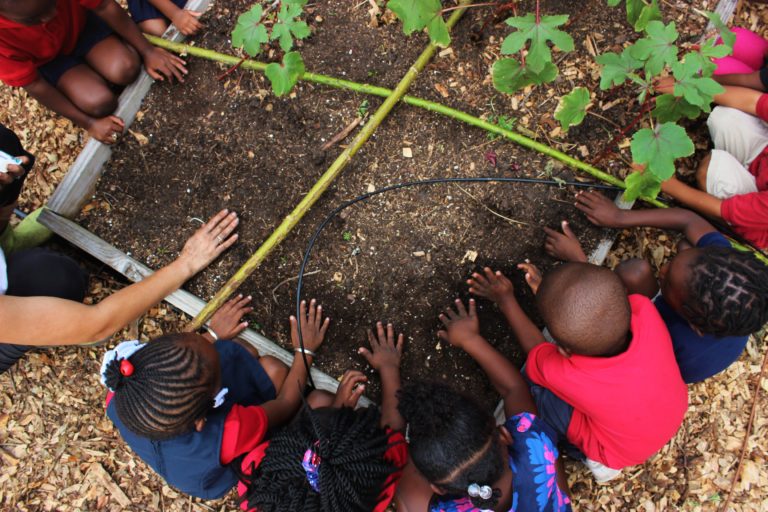by Monica Starr
June 2022
Fleet Farming is an Orlando-based non-profit urban agriculture project that transforms lawns into productive micro farms and gardens. Creating localized food systems in areas without access to fresh produce, it converts underutilized lawn space to edible gardens at schools, community centers, and affordable housing units. Besides addressing food-security issues, Fleet Farming also has a positive impact on the environment, since on average food travels 1,500 miles from farm to plate. Fleet Farming’s mission to localize the food system eliminates this wasteful 1,500-mile journey – and yields more nutritious food as well.
Volunteers with Fleet Farming are working to create micro farms in local backyards all over the city. So far, the impact has been rather astonishing. For example, the Fleet Farming website explains that over 114,000 square feet of lawns have been converted to useable micro farms and gardens, feeding over 5,000 locals. The website also explains that over 7,700 pounds of produce have been harvested. This level of impact shows how successful something like this can be while allowing members of the community to have unlimited access to fresh fruits and vegetables. Fleet Farming’s most current project focuses on a Remington Inn and Suites motel unit that is mostly occupied by homeless families and individuals. These members of the community require access to both affordable housing and fresh produce and the Fleet Farming organization is working to address these needs.
Another place that farms like this can thrive is at schools. For example, Carver Middle School is a Title 1 school with a high concentration of low-income students. A majority of these students are living below the federal poverty line, so the goal of this project is to provide a quality education to students about health and agriculture. Sharing the responsibility of caring for the garden can help young kids learn important life skills that will be carried on into adulthood. This is a safe and supportive environment for these students to learn and apply their knowledge while growing their own fruits and vegetables. Schools like Carver Middle School have embraced Fleet Farming to address the lack of fresh nutritious food in their community – a basic need otherwise not being met. Fleet Farming’s school partnership programs dramatically improve food access while using education to maintain a supportive environment for everyone involved.
The Fleet Farming organization also hosts events like “swarm rides” which are open to anyone wanting to get involved. They also offer internships for students that are willing to participate. Fleet Farming’s successful projects in the Orlando area offer inspiring models for individuals and groups in other urban areas to study and apply in other urban areas around the state.
For more information about this organization, visit the website https://fleetfarming.org/ to learn more!
Monica Starr is the Public Communications Facilitator and Associate Editor of Ecology Florida News. Monica is a graduate student at the University of South Florida studying Global Sustainability.


Leave a Reply